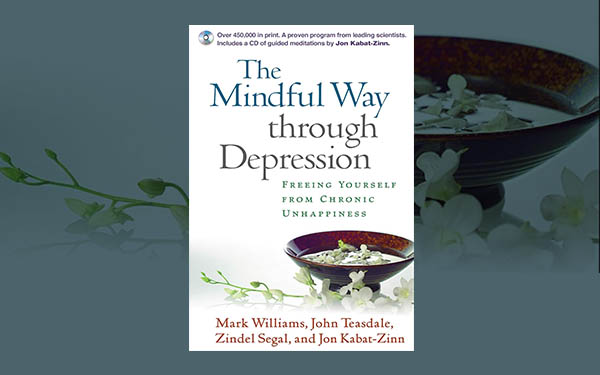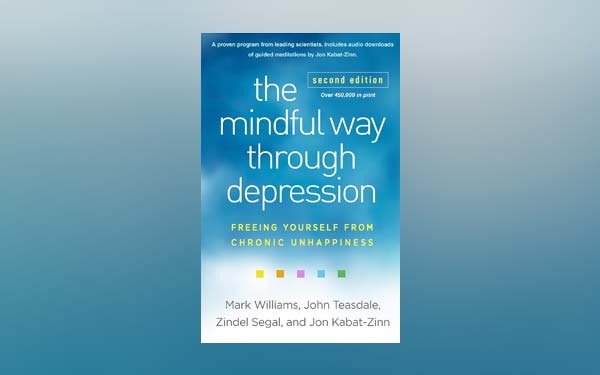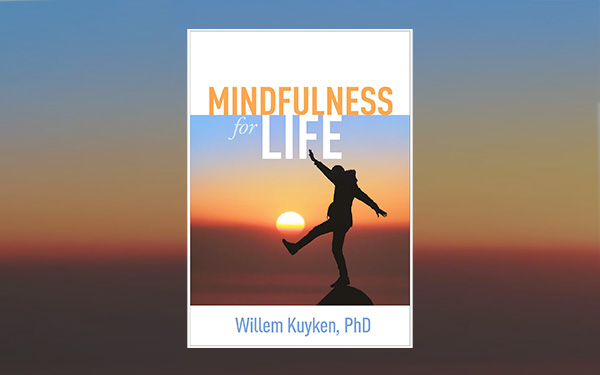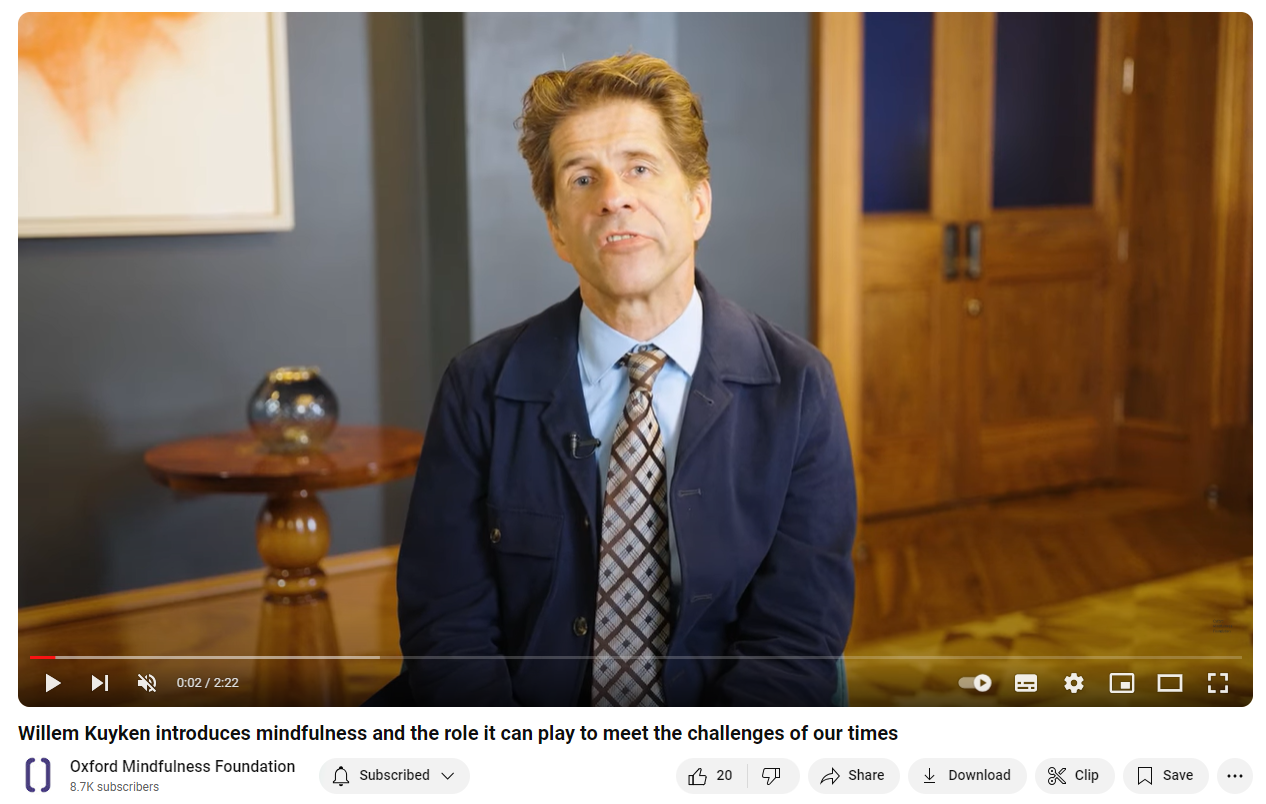The Mindful Way through Depression by Mark Williams, John Teasdale, Zindel Segal and Jon Kabat-Zinn
Through insightful lessons drawn from both Eastern meditative traditions and cognitive therapy, the authors demonstrate how to sidestep the mental habits that lead to despair, including rumination and self-blame, so you can face life’s challenges with greater resilience.

About the Authors
Mark Williams, DPhil, is Emeritus Professor of Clinical Psychology at the University of Oxford, having been Wellcome Principal Research Fellow at Oxford from 2003 to 2012 and at Bangor University from 1991 to 2002. He collaborated with John Teasdale and Zindel Segal in developing mindfulness-based cognitive therapy (MBCT) to prevent relapse and recurrence in major depression; together, they coauthored Mindfulness-Based Cognitive Therapy for Depression, Second Edition (for mental health professionals), as well as the self-help guides The Mindful Way Workbook and (with Jon Kabat-Zinn)The Mindful Way through Depression. Dr. Williams is also coauthor of Mindfulness-Based Cognitive Therapy with People at Risk of Suicide (for mental health professionals). He is a Fellow of the British Psychological Society, the Academy of Medical Sciences and the British Academy. Now retired, he continues to live near Oxford, to teach mindfulness to teachers-in-training across the world, and to explore, with colleagues, how mindfulness might be used in evidence-based public policy.
John Teasdale, PhD, held a Special Scientific Appointment with the United Kingdom Medical Research Council’s Cognition and Brain Sciences Unit in Cambridge. He is a Fellow of the British Academy and the Academy of Medical Sciences. He collaborated with Mark Williams and Zindel Segal in developing mindfulness-based cognitive therapy (MBCT) to prevent relapse and recurrence in major depression; together, they coauthored Mindfulness-Based Cognitive Therapy for Depression, Second Edition (for mental health professionals), as well as the self-help guides The Mindful Way Workbook and (with Jon Kabat-Zinn) The Mindful Way through Depression. Since retiring, Dr. Teasdale has taught mindfulness and insight meditation internationally. He continues to explore and seek to understand the wider implications of mindfulness and meditation for enhancing our way of being.
Zindel Segal, PhD, is Distinguished Professor of Psychology in Mood Disorders at the University of Toronto–Scarborough. He is Director of Clinical Training in the Clinical Psychological Science Program and is also Professor in the Department of Psychiatry. Dr. Segal has conducted influential research into the psychological processes that make certain people more vulnerable than others to developing depression and experiencing recurrent episodes. He actively advocates for the relevance of mindfulness-based clinical care in psychiatry and mental health. He collaborated with John Teasdale and Mark Williams in developing mindfulness-based cognitive therapy (MBCT) to prevent relapse and recurrence in major depression; together, they coauthored Mindfulness-Based Cognitive Therapy for Depression, Second Edition (for mental health professionals), as well as the self-help guides The Mindful Way Workbook and (with Jon Kabat-Zinn) The Mindful Way through Depression.
Jon Kabat-Zinn, PhD, is Professor of Medicine Emeritus at the University of Massachusetts Medical School, where he founded the Center for Mindfulness in Medicine, Health Care, and Society, as well as its world-renowned Mindfulness-Based Stress Reduction Clinic. Dr. Kabat-Zinn is internationally known for his work as a scientist, writer, and teacher, which has contributed to the growing movement of mindfulness into such mainstream institutions as schools, corporations, prisons, professional sports teams, government, and the legal profession, in addition to its influence in medicine and health care, psychology, and neuroscience. He teaches and conducts mindfulness retreats worldwide.
Reviews
“Using mindfulness training to prevent and treat depression is a novel strategy in the West, though it is a traditional application of Eastern meditation practice. Whether you struggle with depression or simply want to understand your mind and emotions better, you will find this book accessible and useful. Depression is epidemic in our society, and I would love to see this sensible treatment approach gain ground.”
Andrew Weil
“A revolutionary treatment approach. For depression sufferers, this is a truly useful guide to achieving emotional balance. For mental health professionals, it should be mandatory reading. I recommend this book and companion CD most highly.”
Daniel Goleman
“An invaluable resource not only for those who suffer from depression, but for anyone familiar with the downward spiral of negative thinking and self-doubt. The authors of this book explore the reasons for depression and give us guidance and support, along with useful tools to find a way through it.”



